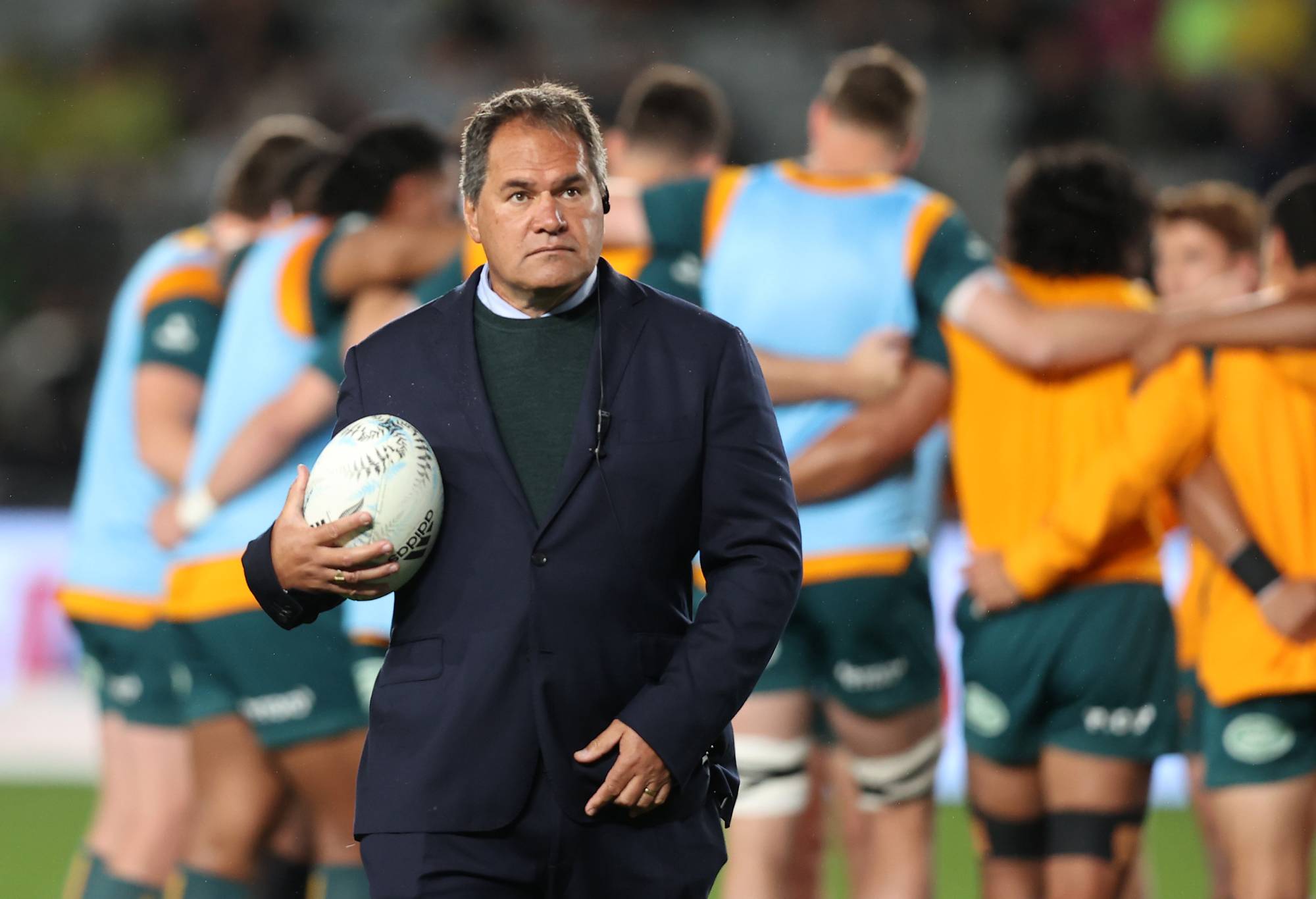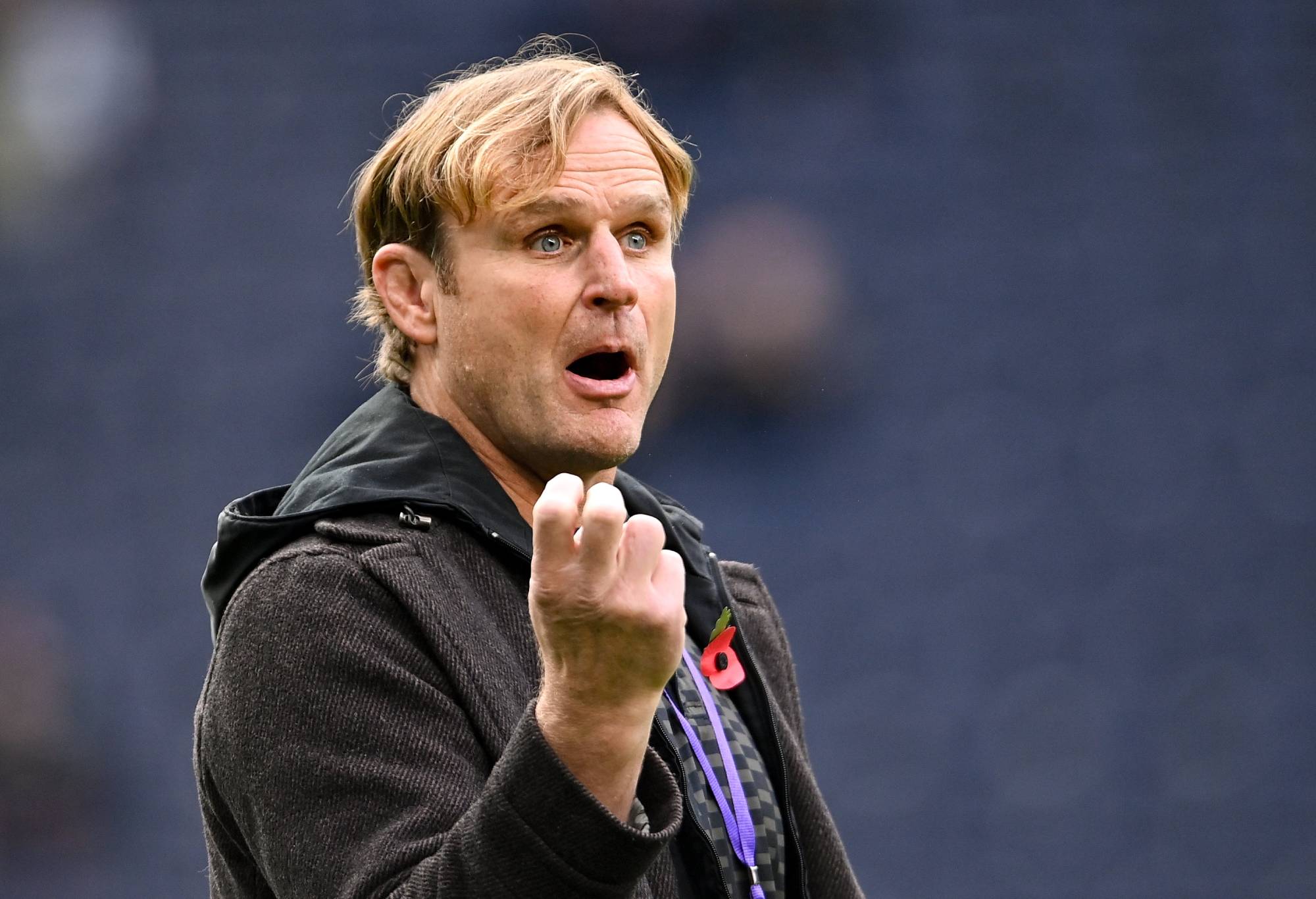“The problem with reheated soup”, a wise rugby sage once told me, “is that it never tastes quite so good, second time around.”
The analogy is pertinent to the current coaching merry-go-round, with Warren Gatland returning to Wales, while Eddie Jones is now on the loose, seemingly linked with just about every job that’s going, but known to have a sense of “unfinished business” with the Wallabies.
Given Eddie’s proven record of being able to pull things out of the fire at the Rugby World Cup, after a bumpy tournament lead-up, I thought the RFU were hasty in their decision to move him on, making it for populist rather than high performance reasons.
They knew Eddie was prickly when they signed him, had experienced in 2019 how his planning and attention to detail always came good at Rugby World Cup time, and recognised it is a major gamble to throw Steve Borthwick in at the deep end, less than a year out from the tournament.
And while it’s true it worked for Australia with Michael Cheika in 2015, Cheika is a very different personality to Borthwick, a far more experienced head coach, and has the hardest hide in world rugby.
While Rugby Australia insist it has no plans to relieve Dave Rennie of his duties; the landscape can change in one moment: Ian Foster was a goner if the All Blacks had lost at Ellis Park this year. Eddie would still have a job if England had beaten or even lost respectfully against South Africa at Twickenham.
Rennie himself would have probably been brushing up his CV had the Wallabies not come back from the dead to beat Wales; albeit a Welsh outfit that had lost to Georgia the previous weekend!
So, nothing can ever truly be discounted in the coaching business, views and actions can change in a second if the circumstances dictate.

Wallabies head coach Dave Rennie. (Photo by Phil Walter/Getty Images)
I experienced it with the All Blacks in 2003, when John Mitchell’s time was coming to an end.
A senior All Black from that team, whom I had worked closely with as media manager, said publicly at an end-of-year awards function that he had enjoyed Mitchell’s coaching and hoped he stayed on.
When he asked me later that evening what I thought, I told him that such was the ill-feeling towards Mitchell at New Zealand Rugby, he was so sacked it wasn’t even funny.
Of course, the ‘appointment process’ was later conducted and – unsurprisingly – Mitchell lost his job.
A few weeks later, when I saw the player again, his view had now flipped.
He was glad the change had been made, he said, as he thought it was for the best.
I’m pretty sure the turnaround was because he suspected I would pass on his views to the New Zealand Rugby hierarchy, but the exchange was a classic example as to how perceptions and opinions can change so quickly in the coaching world.
It’s a tough gig. If anything, unions are even more trigger happy now, with public scrutiny intensified in the social media age, in an era where leaks to the media for personal advantage are commonplace.
Personally, if I was Rugby Australia, I’d be breaking the bank to grab Scott Robertson.
Such is the politics in New Zealand, he’s no certainty for the All Blacks, as was illustrated mid-year when the door was quickly closed even though the opportunity was there to parachute him in as Foster’s replacement.
If media reports are to be believed, an unwillingness to take Joe Schmidt on in a mentor-type capacity was one of the sticking points, which suggests Schmidt may have a key role to play in who takes the job in 2024.
I wouldn’t be totally surprised if it was Schmidt himself.
I’ve known Scott for a long-time and worked with him as a player, and briefly as a coach. He’s a good guy.
Scott’s ‘out there’ a bit, which some enjoy, and others struggle with, but tactically he’s a very good operator, and not afraid to back his judgement and try left field ideas to gain advantage.

(Photo By Ramsey Cardy/Sportsfile via Getty Images)
His sense of adventure, sense of fun, and focus on allowing his players to be themselves, and back themselves, all look like qualities that would be well suited to the Wallabies’ current need.
Scott has had two of the best mentors to be found in the game – Robbie Deans and Wayne Smith – and he has taken on aspects of the approach of each in creating his own coaching method.
Like them, he has also been prepared to make tough and not always popular decisions: he describes dropping 203-gamer Wyatt Crockett for what would have been the Crusaders’ legend’s last appearance in the jersey in the 2018 final, as the hardest selection of his career.
But he made the call, and the Crusaders beat the Lions to win the title.
Perhaps the biggest attribute Scott would bring to the Wallabies is his ability to connect with millennials, of which Australia has plenty, many of whom could be scarily good in the right hands.
As a long-time friend and former Crusader said to me, Scott understands them, and they ‘get’ him.
Which, given the likely age-profile of the Wallabies in the next few years, would make him the perfect fit.
If I was Rugby Australia, I’d do everything I could to ‘get’ him.






























































































